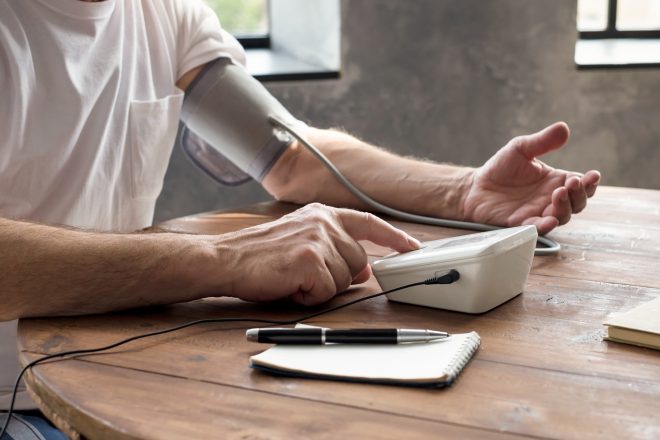Advertisment
Impact of blood pressure control programs at barbershops nationwide

Hypertension, or high blood pressure, kills more Americans than any other health condition. It is especially prevalent in Black Americans and is exacerbated by structural barriers to accessing high quality healthcare. In a 2018 randomized trial called the Los Angeles Barbershop Blood Pressure Study (LABBS), barbers were trained to screen their Black male patrons for hypertension and refer them to a pharmacist who visited the barbershop to counsel and treat individuals with high blood pressure. Participants in the barbershop-based, pharmacist-led program saw a 20-point drop in systolic (top number) blood pressure that they were able to sustain beyond the duration of the trial.
In a new paper published in the journal Circulation, researchers built a model to examine the potential impact of implementing similar blood pressure control programs at barbershops nationwide. The team found that such programs could reach one in three Black men with uncontrolled blood pressure nationally. Among men who participate, the program could avert 40 percent of major cardiovascular events like heart attacks or stroke.
The team also examined the economic constraints under which the program would have to be implemented in order to be considered cost-effective, and estimated that if barbershop-based programs could be delivered at a cost of roughly $1,500 per enrolled participant per year, it would be considered cost-effective by U.S. standards.
“Barbershop-based, pharmacist-led blood pressure control programs represent a novel and effective way to deliver hypertension care to Black men, who represent an underserved population that is disproportionately affected by the complications of uncontrolled hypertension,” said lead author Dhruv S. Kazi, MD, MS, Associate Director of the Richard A. and Susan F. Smith Center for Outcomes Research in Cardiology at Beth Israel Deaconess Medical Center (BIDMC). “Our findings provide a blueprint to guide nationwide implementation of a program that has the potential to save lives and improve health outcomes at a reasonable cost per participant.”
Kazi and colleagues projected clinical outcomes and direct healthcare costs of implementing barbershop-based, pharmacist-led blood pressure control programs, relative to usual care over 10 years. The team based these projections on the likely clinical outcomes for a hypothetical cohort of Black men ages 35-79 years living in U.S. metropolitan areas with a systolic (top number) blood pressure of 140 or above. Assuming the programs could reduce mean systolic blood pressure by 20 points, as was achieved in the LABBPS program, these community-based interventions would avert 8,600 major cardiovascular events annually relative to usual care, including 1,800 myocardial infarctions, or heart attacks, and 5,500 strokes. This is projected to lower healthcare costs by more than $200 million dollars a year.
Despite a range of pre-existing programs and incentives, blood pressure control in the U.S. has worsened in recent years. “There is no reason for us to accept the status quo — there are plenty of effective and affordable medications for blood pressure control if we can address the structural barriers to getting them to people,” said Kazi, who is also Associate Professor at Harvard Medical School. “The barbershop-based blood pressure control program, pioneered by the late Ronald G Victor, MD, challenges the dogma that high-quality blood pressure control can only happen in healthcare settings. By changing the locus of care to a trusted community setting and allowing trained pharmacists to prescribe antihypertensives and escalate doses of medications, Dr. Victor’s program achieved really impressive declines in blood pressure in an underserved population.”
Kazi concluded that to improve the health and lives of diverse communities, experts need to learn how to translate the findings of successful clinical trials into large-scale, cost-effective programs using tools from health economics and implementation science. “Our analysis advances that conversation by showing the way forward, clarifying how these programs can be scaled nationally and quantifying the enormous potential health benefits such a scale-up would bring.”
Journal Reference:
- Dhruv S. Kazi, Pengxiao C. Wei, Joanne Penko, Brandon K. Bellows, Pamela Coxson, Kelsey B. Bryant, Valy Fontil, Ciantel A. Blyler, Courtney Lyles, Kathleen Lynch, Joseph Ebinger, Yiyi Zhang, Gabriel S. Tajeu, Ross Boylan, Mark J. Pletcher, Florian Rader, Andrew E. Moran, Kirsten Bibbins-Domingo. Scaling Up Pharmacist-Led Blood Pressure Control Programs in Black Barbershops: Projected Population Health Impact and Value. Circulation, 2021; 143 (24): 2406 DOI: 10.1161/CIRCULATIONAHA.120.051782





